Tracing the history of soccer back to one origin point is almost impossible. Games involving kicking an animal hide around go back at least 2,000 years, with accounts of them in Ancient China, Rome, Central America, and Greece. Soccer clubs, however, are a relatively more modern invention and the history of the first soccer club is much easier to determine.
Who was the first soccer club? While soccer, or versions of games with soccer-style rules, were popular all over the world, it is Sheffield Football Club in England that FIFA and the English FA officially recognize as the oldest in the world.
The first soccer club ever is not one of the top European teams like Manchester United, Barcelona, or PSG. Instead, it is club from England’s Steel City that was founded in 1857 and that is currently playing in the middle to lower tiers of the English soccer pyramid.
Sheffield Football Club
Sheffield Football Club, as with many early soccer clubs, was born out of another highly popular English sport. It was members of a Sheffield cricket club that started playing games of pick-up soccer in 1855 as an alternative to cricket when the members wanted to play something different. Sheffield FC was then founded by two members, Nathaniel Creswick and William Priest, in 1857, with the original headquarters being in a greenhouse.
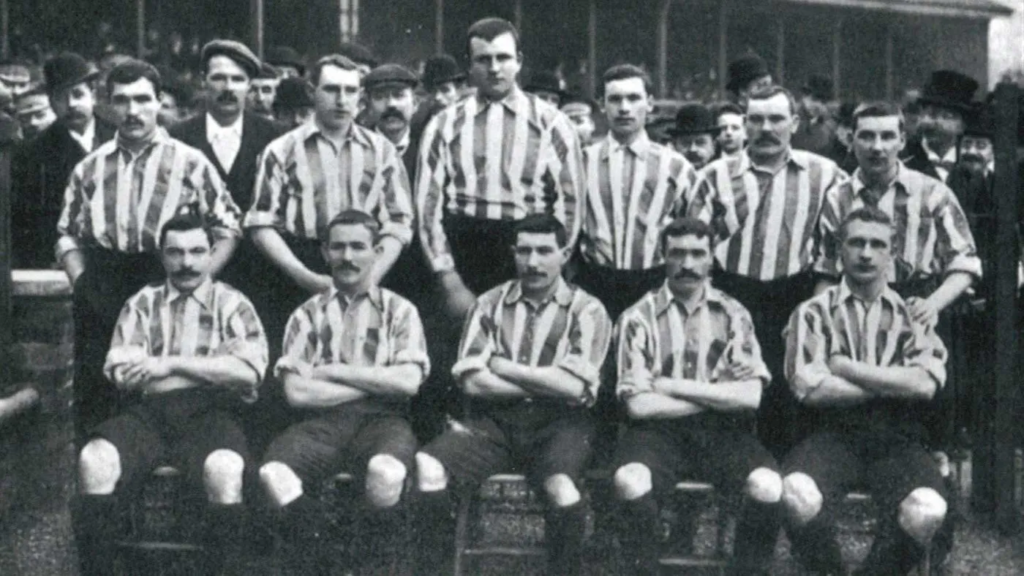
Games were originally played in teams between club members, they had no one to play against, until 1860 when near neighbor Hallam was founded and became competition. The game spread quickly in the Sheffield area as a working class sport and by 1862 there were 15 clubs in the Sheffield area regularly playing games against each other.
Sheffield Rules
One interesting aspect of Sheffield FC is that they created their own set of rules to play by. There were no standardized rules back in 1857, there weren’t really any rules at all, so when founding the club the members also had to draft up rules to play by. These so called Sheffield Rules were created and revised by the club, often through trial and error on the pitch, and they were used in all of the game sin and around the city of Sheffield from 1858 to 1877.
A game of Sheffield rules soccer would be unlike anything you see today. There were ‘fair catches’ where any player could use his hands to catch the ball as long as it hadn’t hit the ground first and they level of physical play was punishing. Over time, however, the rules became more streamlined, and many of the concepts have been huge influences on the rules of the modern game. These included corners, heading (when the ‘fair catch’ was banned), and the position of goalkeeper.
Defunct Clubs
Sheffield FC might be the oldest surviving soccer club in the world, but there are records of clubs existing centuries before their formation. Many of these clubs have had their records lost to time, often with only spotty information remaining about them. Brewers’ Company of London is one example of this. Surviving records of theirs show that between 1421 and 1423 the company hired “football players” for “20 pence”. This certainly suggests some form of organized recreational activity that could easily be seen as a soccer club within the company.
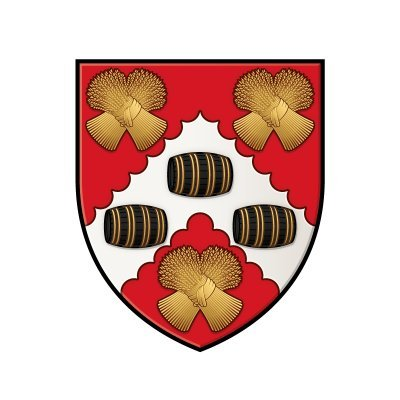
Later clubs, but still in existence before Sheffield FC, include The Gymnastic Society of London, who met for both football and wrestling from the mid-1700s onwards on Kensington Common, The Foot-Ball Club of Edinburg which was created in 1824, and the Great Leicestershire Cricket and Football Club that popped up in 1841.
Big Club Formation Dates
Some of the biggest clubs in world soccer, especially in England, have been around for a long, long time. Here is a few of them and their origin stories.
Manchester United – Formed in 1878 as Newton Heath LYR, and famously wearing green and gold, the club that became Manchester United was created by worked of the Lancashire and Yorkshire Railway Depot at Newton Heath.
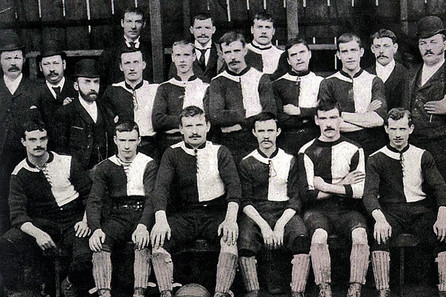
Liverpool – Formed in 1892 after a dispute between Everton Football Club and their club president and owner of the land at Anfield. Everton moved to Goodison Park and John Houlding formed a new club that would become Liverpool at Anfield.
Arsenal – Formed in 1886 as Dial Square by 16 munitions workers. The club was named after a workshop that was the head of the Royal Arsenal complex in North London.
Barcelona – Formed in 1899 by Swiss Hans Gamper after a newspaper advertisement stating his wish to form a football club in the city.
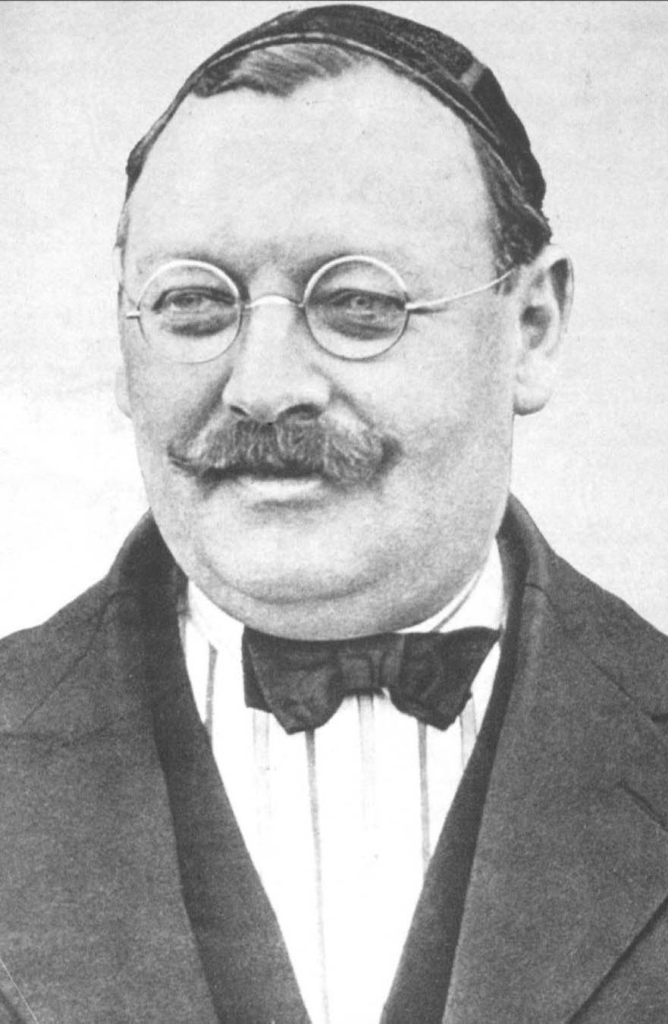
Real Madrid – Formed in 1902 after restricting of a team originally formed in 1897 by a number of people including graduates from Oxford and Cambridge Universities.
Bayern Munich – Formed in 1900 when members of a Munich gymnastics club that they were a part of decided that the club’s footballers would not be allowed to join the German Football Association. Eleven members of the football club left the meeting and founded Bayern Munich that same evening.
PSG – Formed in 1970 when a group of businessmen decided to create a major team in Paris. The French capital was lacking an elite soccer team and the businessmen decided that building from scratch was better than dealing with the politics of existing clubs in the region.
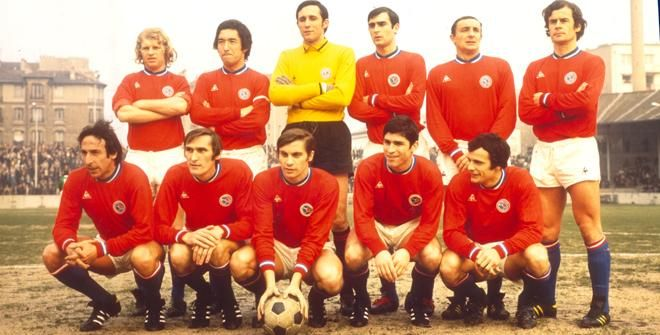
Other Early Clubs
Cambridge University Association Football Club – More than worth a mention as the club claims to be the oldest still surviving soccer club in the world but don’t have the exact records to support the claim. Likely formed in 1857, there are records of different clubs within the university playing back in the 1840s. The clubs was given a special award in 2016 from the National Football museum for being the oldest in the world.
Melbourne Football Club – This Australian club is another formed from a cricket team and their own set of ruled that were developed in 1859, the year after their formation, became the basis for the game of Australian rules football which is a massive sport in its own right.
Cray Wanders Football Club – A club still existing in the English non-league system, Cray Wanders are notable for how they formed. Established in 860, the members were mostly workers constructing the London, Chatham and Dover Railway line that had been kicking a ball around on their breaks since 1858.
